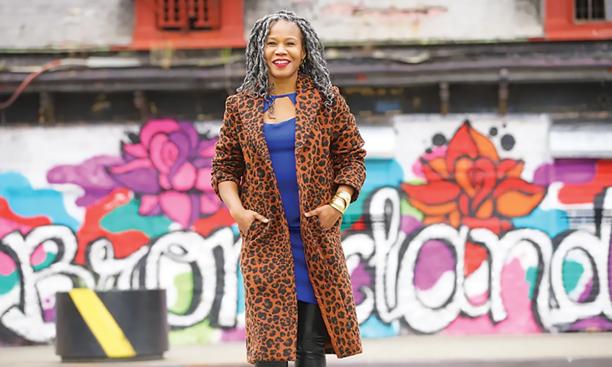
Princeton students are collaborating with Trentonians this fall as part of a new Keller Center course that fights what visiting lecturer Majora Carter dubs the American brain drain in “low-status communities” — her term for neighborhoods where inequality is assumed.
In addition to being a MacArthur genius grant winner, Carter is a real-estate developer, environmental activist, and café owner, and she centers her work around economic development, particularly through local talent retention, and the policies and attitudes that work against communities like Trenton.
“These are not easy topics to understand and … to see and to feel, and to make that systemic bias not just something that you read on a page, but someone that you’re looking at,” said Carter.
Every Thursday morning, the 10 students in The Reclamation Studio: Humanistic Design Applied to Systemic Bias meet in the Friend Center to discuss themes from that week’s readings — including Carter’s own book, Reclaiming Your Community: You Don’t Have to Move Out of Your Neighborhood to Live in a Better One — which speak to the long history of systemic bias in community development.
After lunch, they return for studio time to collaborate with Trentonian social entrepreneurs on three specific projects, all with the aim of empowering the community.
“I really do think it’s a partnership between the students and [the entrepreneurs], trying to make sure that we understand what they do and why, and that we are here to figure out how do we support their efforts,” said Carter.
Sophia Vernon ’27, the only freshman in the class, is working with two other students and Trentonian entrepreneur Elijah Dixon on architectural plans, programming, and potential partnerships for The Enclave, a mixed-use building set to open in 2025 that they hope will become a social gathering spot.
Before she came to Princeton, Vernon wanted to go into nonprofit work, but that’s changed. She said this course has “really opened my eyes to the way that a lot of times nonprofits aren’t the most effective or correct way to make change, especially in low-status communities” because they tend to “reinforce the perspective that the community needs outside help to be better.”
Another group is working on relationship-building in tandem with the Smith Family Foundation for one of their programs that provides scholarships to local students in the hopes that after their college graduations, they will return to the area to take advantage of leadership opportunities. The third group is examining public contracts awarded by the city to determine if more funds can be reinvested into local businesses.
